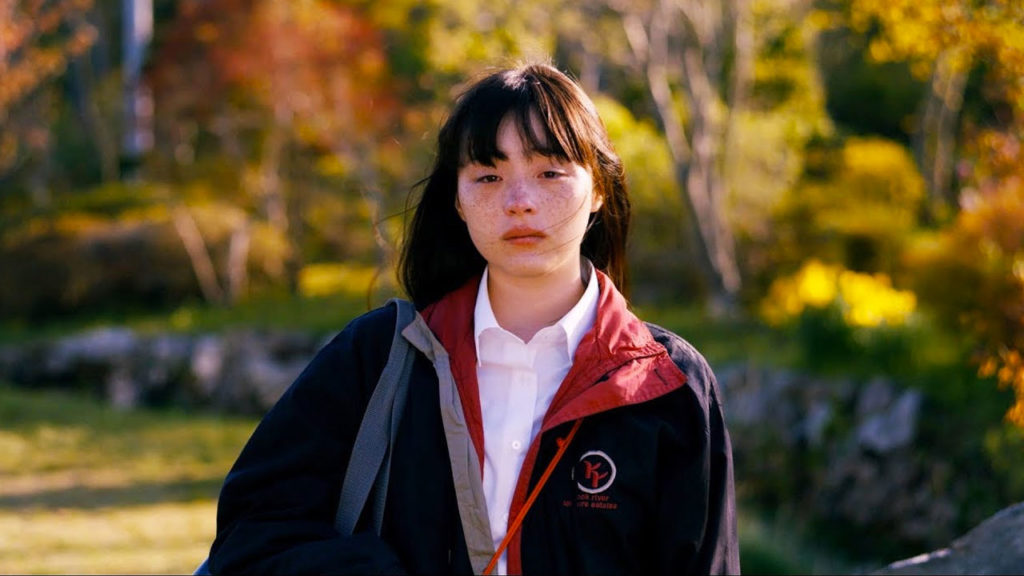
| Japan, 2021 | Drama/Roadtrip | Independent | Trailer |
Kaze no Denwa got released this weekend, but only for a couple of days, in very limited screenings. This means that this movie was not exclusively made for profit, but was conceived with another goal in mind.
The picture acts as a memento of 2011’s Fukushima catastrophe, a topic most of the world has surely forgotten, but there exist thousands of people that still have to deal with as consequences in their life. Parallel to the classic Hiroshima Mon Amour (which also shares its slow pace with), Kaze no Denwa puts on the screen real cases and testimonies of Fukushima survivors (many even by utter chance only) and how it has shapen their life. The vehicle is Haru, a teenage girl that lives with her aunt in Hiroshima (well done reference) after her family drowned in 2011, and how she suddenly embarks on a trip to her old town in Iwate (near Fukushima) to deal with the past. The people she meets in her way trigger her empathy, and we the audience learn about an social issue for many while Haru reaches her destiny.
The name of the movie suggests a real monument, an abandoned telephone booth in Iwate where Fukushima survivors go and talk to, venting their feelings, as if their deceased ones were on the other side of the line. Haru’s journey ends there, where she reconciles with her past and cleanses her soul.
The movie, while terribly slow sometimes, has the gut-wrenching ability of reality, and the performance of the main actress is absolutely convincing. Perhaps it’s not the most amusing movie to watch, but it has an ethereal value together with its reflective nature that gives it a certain charm.